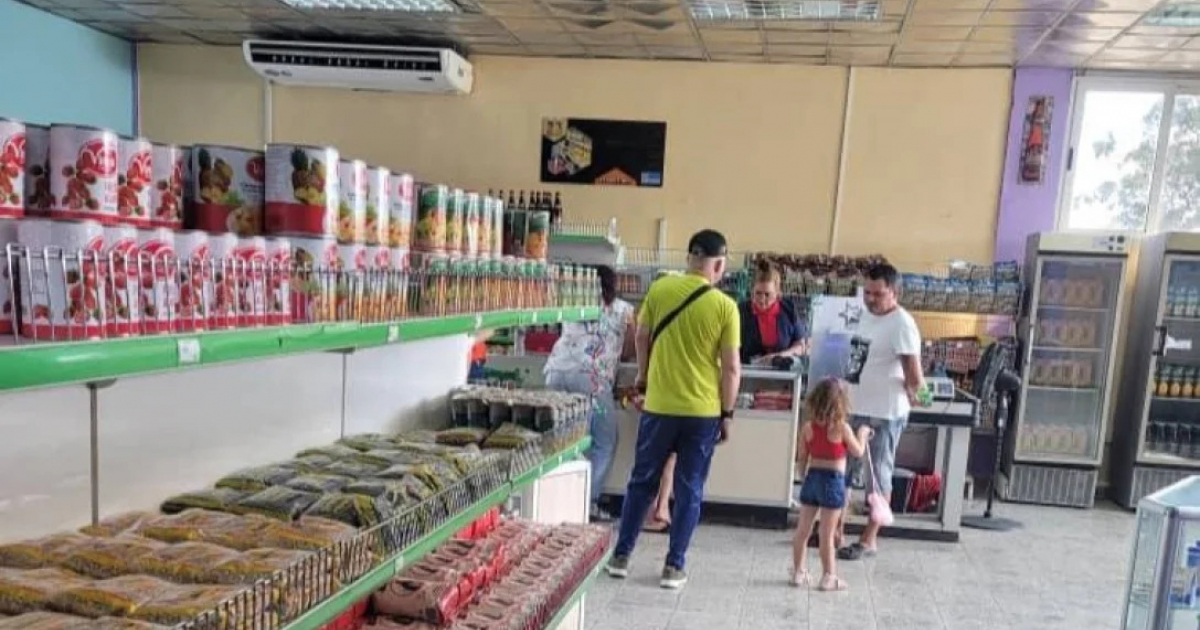Recently, a supermarket opened in Havana that only accepts cash in U.S. dollars or cards linked to foreign currency accounts, sparking widespread outrage among the locals. Located at 3rd and 70th in the Playa municipality, the store stands opposite an older establishment operating in Freely Convertible Currency (MLC). Unlike its counterpart, this new store is well-stocked with both local and international goods.
Inside, customers find groceries, personal hygiene products, household goods, and appliances. However, the limited payment options effectively exclude most Cubans from purchasing these items. "It's a total disrespect. First, it was MLC, and they didn't accept USD, only euros. Now it's USD, and they don't accept euros at this store. The MLC store is completely empty, while the new USD one is fully stocked. How long will this go on? Where are they trying to take us?" lamented a Havana resident on CiberCuba's Facebook page.
"Now the dollar will rise like foam, which is sad for those of us who don't receive dollars. It was the same with the MLC; to buy ham or pasta sauce, I have to pay whatever the rate is. It's misery, and I feel nothing but pain and disgust," expressed a self-employed individual.
Another person remarked, "They must be shameless; there's no food for the people in national currency, yet everything is available in dollars. For those who choose not to see, where is the blockade? We aren't paid in dollars, nor will we be."
A shopper recounted that when paying for purchases, the change should be in USD, but due to a lack of small bills, they complete the total with cookies or candies.
The Dollar-Driven Economy
This supermarket is part of the Hotel Gran Muthu Habana, opened in 2023 and managed by MGM Muthu Hotels and the Gaviota group, which is controlled by the military elite of the regime. Payments can be made in cash dollars, with the Fincimex Classic card, or a new special card from GAESA's financial arm, which can be recharged from abroad.
"Every time I think things can't get worse, this government finds a way to prove me wrong. It's a slap in the face to ordinary Cubans, those who work for the regime but are paid in a currency that's not usable here," commented a mother.
A resident of West Palm Beach stated, "They're putting the burden on Cubans who left to support the country, plain and simple."
"Our currency is worthless, it shouldn't even exist," declared a man from Cienfuegos.
He continued, "The MLC is the dollar deposited in a card, already in the bank, and you just have a piece of cardboard with a number. Now, even that dollar you deposited has no value in this store? What do we call this? While the more humble and needy the people become, the more they force emigrated family members to send money. Poverty becomes a lucrative business! Inflation and the devaluation of the national currency worsen this poverty. The poorer we are, the more profit they make!"
Humorist Otto Ortiz echoed these sentiments, calling it unjust for some stores to refuse MLC payments.
"My question is: Isn't MLC essentially dollars we give to the state? So, what do we do with them? Can private businesses also choose to accept only those currencies?" he asked.
This new store exemplifies the increasing dollarization of the Cuban economy, with the regime aggressively focusing on dollar sales to secure hard currency and bring some semblance of order to the national chaos, while the population struggles with a rapidly depreciating Cuban peso.
In December, the government approved a document regulating the "partial dollarization of the economy," as announced by Prime Minister Manuel Marrero Cruz during the National Assembly.
Understanding Cuba's Economic Shift
Why are Cubans upset about the dollar-only supermarket?
Cubans are frustrated because the supermarket only accepts U.S. dollars, a currency most locals don't have access to, limiting their ability to purchase goods.
What does the term "MLC" refer to in the Cuban context?
MLC stands for Freely Convertible Currency, a system where Cubans use foreign currency accounts to purchase goods, usually in euros or U.S. dollars.
How is the Cuban government addressing the economic issues?
The Cuban government is attempting to stabilize the economy by prioritizing dollar transactions, though this approach has led to significant public discontent.
